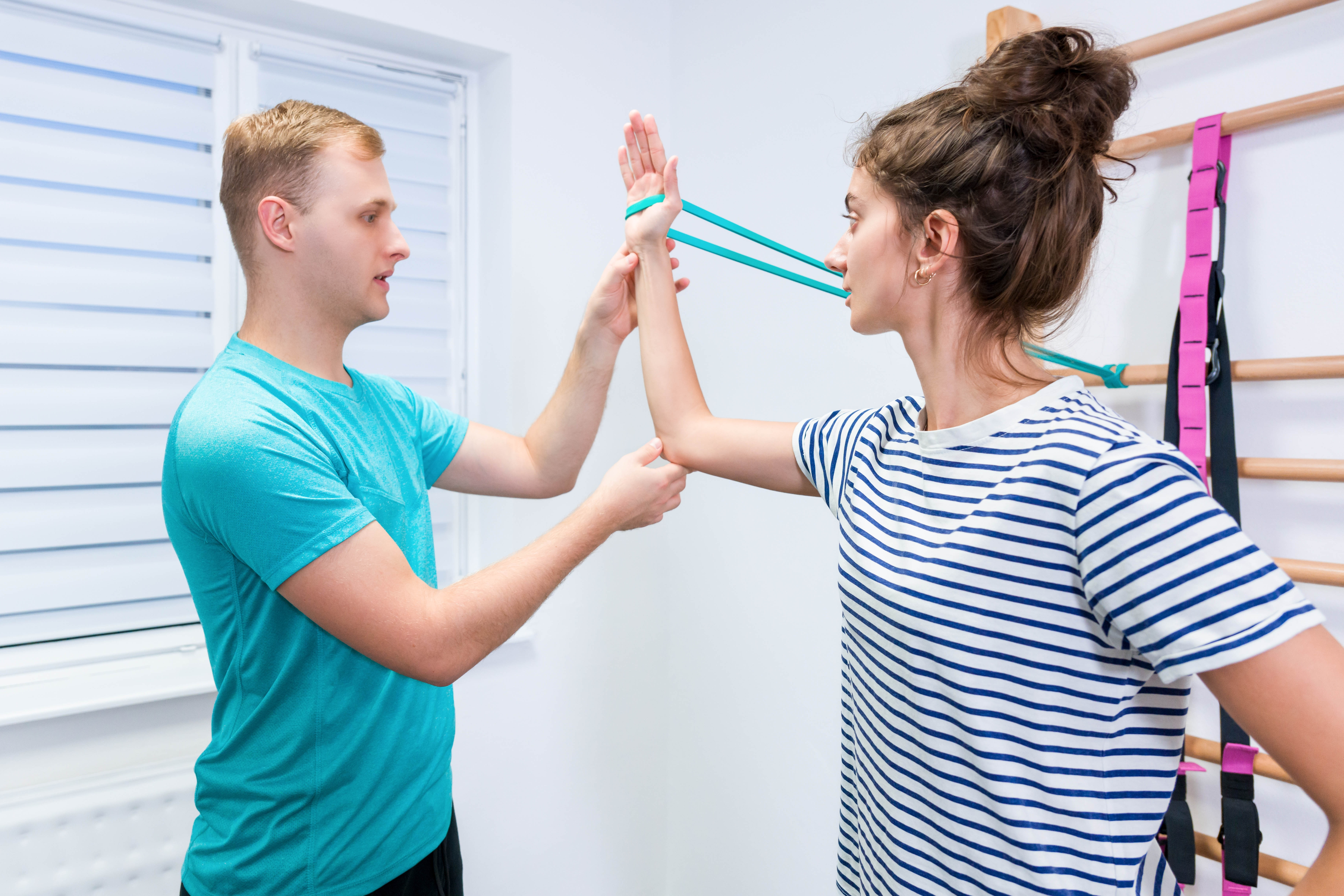Shoulder Impingement Syndrome
Healthy View

Written by: Jay Bhuta, Registered Physiotherapist, Sport Medicine Clinic
What is Shoulder Impingement Syndrome?
Shoulder impingement syndrome occurs when the rotator cuff tendons and the bursa (a fluid-filled sac that reduces friction) are compressed or 'impinged' during shoulder movements. This condition can cause pain, inflammation, and limited range of motion in the shoulder.
Causes of Shoulder Impingement Syndrome
1. Repetitive Overhead Activities: Engaging in sports or jobs that require frequent overhead arm movements, like swimming, tennis, or painting, can lead to impingement.
2. Poor Posture: Slouching or having a forward head posture can alter the mechanics of the shoulder joint, contributing to impingement.
3. Age-Related Wear and Tear: As we age, the tendons and other soft tissues in the shoulder can degenerate, making them more susceptible to impingement.
4. Shoulder Injuries: Previous injuries, such as shoulder dislocations or fractures, can increase the risk of developing impingement.
5. Muscle Imbalances: Weakness in the shoulder muscles, particularly the rotator cuff and scapular stabilizers, can lead to improper shoulder mechanics and impingement.

How Can Physiotherapy Help?
Physiotherapy can play a crucial role in managing shoulder impingement syndrome through:
- Manual Therapy: Techniques such as joint mobilizations and soft tissue massage to reduce pain and improve mobility.
- Exercise Prescription: Tailored exercises to strengthen the rotator cuff and scapular muscles, enhancing shoulder mechanics and reducing impingement.
- Postural Education: Guidance on proper posture to avoid further aggravation of the shoulder.
- Electrotherapy: Modalities like ultrasound or TENS to reduce inflammation and pain.

Recovery Time
Recovery time can vary depending on the severity of the condition and the individual's adherence to the treatment plan. Generally, it can take anywhere from a few weeks to several months for full recovery. Consistency with therapy and exercises is key.
Best Exercises for Rehab
1. Pendulum Swings: Lean over with your arm hanging down and gently swing your arm in small circles.
2. External Rotation with Resistance Band: Attach a resistance band to a stable surface, hold the band with your elbow at your side, and rotate your forearm away from your body.
3. Scapular Squeezes: Squeeze your shoulder blades together and hold for a few seconds before releasing.
4. Wall Slides: Stand with your back against a wall and slowly slide your arms up and down in a 'Y' formation.
5. Sleeper Stretch: Lie on your side with your affected arm bent at 90 degrees and gently press your forearm down with your other hand.

Continuing Your Treatment Plan at Home
- Adherence to Exercises: Perform prescribed exercises regularly as instructed by your physiotherapist.
- Heat and Ice Therapy: Use ice packs to reduce inflammation and heat packs to relax tight muscles.
- Ergonomic Adjustments: Ensure your workspace and daily activities promote good posture and reduce strain on the shoulder.
- Posture Awareness: Maintain good posture throughout the day to prevent exacerbating the condition.
Prevalence by Season
Shoulder impingement syndrome doesn't have a specific seasonality; however, it might be more prevalent during times when individuals engage in seasonal sports or activities that involve repetitive overhead movements, such as swimming in the summer or playing tennis.
By providing clear, concise, and actionable information, we aim to help our patients understand and manage shoulder impingement syndrome effectively. If you have any questions or need personalized advice, feel free to visit our clinic in downtown Toronto!

Want to know more about shoulder impingement and how a physiotherapist can help?
Book an appointment with Jay Bhuta. Let us help support and strengthen your shoulder today.
4081